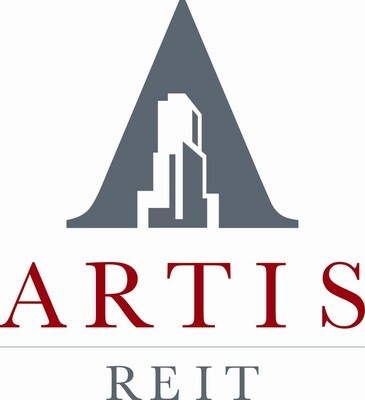Explore the best REITs to invest in Canada, offering top performance, stable dividends, and diversification to grow your real estate portfolio year-round

- What are the best Canadian REITs to invest in?
- Allied Properties (AP.UN)
- BTB REIT (BTB.UN)
- Nexus REIT (NXR.UN)
- Firm Capital (FCD.UN)
- PROREIT (PRV.UN)
- Automotive Properties (APR.UN)
- Artis REIT (AX.UN)
- Plaza Retail REIT (PLZ.UN)
- Northwest Healthcare Properties (NWH.UN)
- SmartCentres REIT (SRU.UN)
- Are REITs a good investment in Canada?
Investing in real estate presents a great opportunity to diversify your portfolio, protect against inflation, and reap huge returns. But if you don’t have the time and patience to deal with the hassles of property ownership, there’s one type of investment that may suit you.
Enter real estate investment trusts (REITs).
REITs are companies that hold real estate assets in their portfolios. As an investment vehicle, REITs work almost the same as mutual funds. But instead of trading shares of stock, you buy and sell shares of revenue-generating properties.
By investing in REITs, you get exposure to the real estate market without having to worry about problematic tenants, the cost of utilities, and maintaining a property.
But with dozens to choose from, how do you find the one that suits your investment goals? To make your search easier, Wealth Professional lists the best REITs to invest in Canada in this guide. We’ll crunch the numbers and look at the key parameters that make these assets a great investment option.
What are the best Canadian REITs to invest in?
If you’re new to investing, REITs are companies that own and operate income-producing properties. They can hold one or several types of properties, including:
- apartments
- billboards
- casinos
- cell towers
- data centres
- farmland
- healthcare facilities
- hotels
- industrial properties
- manufactured housing
- office spaces
- shopping malls
- single-family rentals
- strip centres
- student housing
- warehouses and other storage facilities
You can also invest in mortgage REITs, cannabis REITs, and timber REITs. You can learn more about REITs in this guide on how to start investing in real estate.
Here are the top publicly traded REITs in Canada based on figures from this website. While the list is ranked based on dividend yield, we also gathered relevant information, including market cap and price-to-fund from operations. All data are current as of February 25, 2025.
The numbers here are for informational purposes only. They are not intended for trading.

1. Allied Properties (AP.UN)
Dividend yield: 10.52%
Price to FFO: 8.1
Debt ratio: 68%
Market cap: $2.19 billion
Segment: Office REIT
Allied Properties focuses on urban office spaces. It owns 195 rental properties across major Canadian cities, including Toronto, Montréal, and Vancouver. These properties have a combined leasable area of 14.2 million square feet and are valued at around $8.3 billion. On top of these are 11 properties under development, valued at about $1.2 billion.
Allied Properties benefits from having a stable financial foundation and experienced leadership. It is among the best REITs to invest in Canada right now because of strong growth potential, especially with many workplaces returning to the office.

2. BTB REIT (BTB.UN)
Dividend yield: 8.94%
Price to FFO: 8.0
Debt ratio: 74%
Market cap: $280 million
Segment: Diversified REIT
BTB invests in suburban offices, industrial properties, and retail spaces. The Québec-based REIT owns 77 properties in key cities, including Montréal, Trois-Rivieres, and Québec City. Outside the province, it rents out spaces in Ottawa, Edmonton, and Saskatoon.
BTB’s properties have a total leasable area of around 6.1 million square feet. These are valued at more than $1.2 billion.
One of the key benefits of investing in the industrial and office REIT is its distribution reinvestment plan. Here, you can choose to reinvest your monthly cash distribution in additional BTB units at a discounted rate.

3. Nexus REIT (NXR.UN)
Dividend yield: 8.78%
Price to FFO: 10.2
Debt ratio: 69%
Market cap: $500 million
Segment: Industrial REIT
Nexus is an industrial REIT that owns 116 properties across Canada with a combined leasable area of $12.4 million square feet. These include two properties under development, where the company holds 80 percent interest. As of September 2024, the company assets are valued at $2.6 billion.
Nexus REIT’s properties, which include shopping centres and warehouses, boast a 95 percent occupancy rate. Other factors that make the company one of the best Canadian REITs to invest in are its strong financial foundation and experienced leadership.

4. Firm Capital (FCD.UN)
Dividend yield: 8.62%
Price to FFO: 11.8
Debt ratio: 66%
Market cap: $220 million
Segment: Diversified REIT
Firm Capital Property Trust operates as an open-ended real estate investment trust. The Toronto-based REIT owns 64 commercial properties, with a total leasable area of around 2.5 million square feet. Apart from these assets, its portfolio includes five multi-residential complexes consisting of about 600 units and four manufactured homes with more than 530 units.
Firm Capital may be a good option if you’re searching for one of the top REITs in Canada offering monthly dividend stock with a high yield. The firm has also been a strong performer for income-focused investors, with a payout ratio of 83 percent.

5. PROREIT (PRV.UN)
Dividend yield: 8.41%
Price to FFO: 11.1
Debt ratio: 66%
Market cap: $320 million
Segment: Industrial REIT
Pro Real Estate Investment Trust (PROREIT) is an industrial REIT that focuses on secondary markets with strong economies. The bulk of its 116 properties is in eastern and central Canada. The company’s properties have a gross leasing area of 6.1 million square feet. The average occupancy rate is 97 percent.
Despite high interest expenses, PROREIT’s FFO remains high. This indicates strong performance. The company’s high dividend yield and strong valuation make it a promising investment option.

6. Automotive Properties (APR.UN)
Dividend yield: 7.86%
Price to FFO: 10.7
Debt ratio: 50%
Market cap: $490 million
Segment: Diversified REIT
The bulk of Automotive Properties’ tenants are automotive and original equipment manufacturer (OEM) dealership and service businesses. These include global auto brands such as Dilawri, AutoCanada, Drive Auto, Go Auto, Mierens, and Pfaff Auto.
Automotive Properties owns 78 income-producing properties with a total leasable area of 2.9 million square feet. These properties occupy a combined 255 acres in key cities in Ontario, British Columbia, Alberta, Québec, Manitoba, and Saskatchewan.
If you want exposure to Canada’s thriving automotive retail market, Automotive Properties is one of the best REITs to invest in.

7. Artis REIT (AX.UN)
Dividend yield: 7.76%
Price to FFO: 8.2
Debt ratio: 68%
Market cap: $810 million
Segment: Diversified REIT
Artis Real Estate Investment Trust is one of the largest diversified REITs in Canada. More than half of its portfolio consists of office buildings. Industrial properties comprise over a quarter, while retail spaces make up the rest.
Artis owns 61 properties in Canada, with a total leasing area of almost 5 million square feet and occupancy rate of around 93 percent. In the US, the company has 27 properties, mostly office spaces, with a gross leasing area of over 5 million square feet. The occupancy rate is 85 percent.
Artis operates as an unincorporated close-ended REIT. Most of its properties are located in Manitoba and Alberta.

8. Plaza Retail REIT (PLZ.UN)
Dividend yield: 7.55%
Price to FFO: 9.8
Debt ratio: 63%
Market cap: $400 million
Segment: Retail REIT
An open-ended real estate investment fund, Plaza owns and develops retail properties mostly in Ontario, Québec, and Atlantic Canada. The company’s expansive portfolio consists of 218 properties, with an occupancy rate of 97.5 percent. It also has 11 projects under development.
National retailers comprise almost 91 percent of Plaza’s tenants. These include Burger King, Starbucks, Tim Hortons, Pharmaprix, Jean Coutu, and Shoppers Drug Mart.
If you want exposure to the retail property market and are searching for a REIT offering a strong income potential, Plaza may be a good option. The company ranks among the best REITs to invest in Canada in terms of dividend yield.

9. Northwest Healthcare Properties (NWH.UN)
Dividend yield: 7.30%
Price to FFO: 12.9
Debt ratio: 63%
Market cap: $1.21 billion
Segment: Healthcare REIT
Northwest Healthcare Properties ranks among the top REITs to invest in if you’re looking to take part in the healthcare real estate market. It owns 186 properties across North America, Europe, Australasia, and Brazil. These assets have a combined leasing area of 16.1 million square feet and are valued at $8.7 billion.
Hospitals and healthcare facilities comprise about two-thirds of Northwest Healthcare’s assets. More than a third are medical office buildings while a fraction consists of research and educational facilities. The occupancy rate is 96 percent.
Northwest Healthcare holds a strong financial position, with a gross book value of $6.3 billion. The healthcare REIT also has a solid leadership team, whose members boast an average of 20 years’ experience in real estate.

10. SmartCentres REIT (SRU.UN)
Dividend yield: 7.24%
Price to FFO: 11.7
Debt ratio: 49%
Market cap: $4.37 billion
Segment: Retail REIT
SmartCentres is one of Canada’s largest retail REITs. It owns 195 properties with a combined leasing area of 35.3 million square feet. These include 113 properties tenanted by retail giant Walmart.
SmartCentres’ retail properties have an occupancy rate of almost 99 percent. The company’s assets are valued at $11.9 billion. Apart from income-producing retail spaces, the trust owns 3,500 acres of land across Canada.
The Concord-headquartered REIT plans to expand its portfolio to mixed-use commercial and residential properties. If you’re looking to diversify your portfolio, SmartCentres is one of the best Canadian REITs you can invest in.
Here’s a summary of the 10 best REITs to invest in Canada based on dividend yield.
Top 10 Canadian REITs in terms of dividend yield
|
REIT |
Dividend yield |
Market cap |
Segment |
|---|---|---|---|
|
1. Allied Properties (AP.UN) |
10.52% |
$2.19 billion |
Office REIT |
|
2. BTB (BTB.UN) |
8.94% |
$280 million |
Diversified REIT |
|
3. Nexus (NXR.UN) |
8.78% |
$500 million |
Industrial REIT |
|
4. Firm Capital (FCD.UN) |
8.62% |
$220 million |
Diversified REIT |
|
5. PROREIT (PRV.UN) |
8.41% |
$320 million |
Industrial REIT |
|
6. Automotive Properties (APR.UN) |
7.86% |
$490 million |
Diversified REIT |
|
7. Artis (AX.UN) |
7.76% |
$810 million |
Diversified REIT |
|
8. Plaza (PLZ.UN) |
7.55% |
$410 million |
Retail REIT |
|
9. Northwest Healthcare (NWH.UN) |
7.30% |
$1.21 billion |
Healthcare REIT |
|
10. SmartCentres (SRU.UN) |
7.24% |
$4.37 billion |
Retail REIT |
Find out if REITs are still a sound investment option for Canadian investors in this guide.
Methodology for choosing the best REITs to invest in Canada
To come up with the list, the Wealth Professional Canada research team considered the following parameters:
Dividend yield
This refers to the ratio of the percentage of a company's annual dividend payments relative to its stock price. It tells you how much income you’ll receive based on the price of a stock. This gives you insight into the immediate cash return of your investment.
You can learn more about dividend yield and other stock market terms in this beginner’s guide on how to buy stocks in Canada.
Price to FFO
This is calculated by adding amortization and depreciation to the net income, then subtracting the gains on the sale of the properties. Also known as P/FFO, it is a reliable way of determining the value of a REIT.
Debt ratio
Also called debt-to-equity ratio in real estate, this is calculated by dividing a company's total liabilities by the amount of equity provided by stockholders. This provides a clear picture of how much debt an investment property carries compared to its equity. The higher the debt ratio, the higher the risk.
Market capitalization
Also known as market cap, this shows the total value of the company’s shares of stock. Market cap gives you an idea of the company’s size. It can also indicate how stable or risky a company is. Some investors focus on market cap when choosing an investment.
For the benefit of this type of investors, we prepared a separate list of the 10 best REITs to invest in Canada based on market cap. All figures are current as of February 25, 2025. Data is intended for informational purposes only.
Top 10 Canadian REITs in terms market capitalization
|
REIT |
Market cap |
Dividend yield |
Segment |
|---|---|---|---|
|
1. Choice Properties (CHP.UN) |
$9.78 billion |
5.58% |
Retail REIT |
|
2. Canadian Apartment Properties (CAR.UN) |
$6.60 billion |
3.93% |
Residential REIT |
|
3. RioCan (REI.UN) |
$5.88 billion |
5.92% |
Retail REIT |
|
4. Chartwell Retirement Residences (CSH.UN) |
$4.53 billion |
3.68% |
Healthcare REIT |
|
5. SmartCentres (SRU.UN) |
$4.37 billion |
7.24% |
Retail REIT |
|
6. Granite (GRT.UN) |
$4.20 billion |
5.08% |
Industrial REIT |
|
7. First Capital (FCR.UN) |
$3.52 billion |
5.37% |
Diversified REIT |
|
8. Boardwalk (BEI.UN) |
$3.48 billion |
2.55% |
Residential REIT |
|
9. CT (CRT.UN) |
$3.45 billion |
6.32% |
Retail REIT |
|
10. Dream Industrial (DIR.UN) |
$3.36 billion |
6.01% |
Industrial REIT |
Are REITs a good investment in Canada?
REITs can be a good addition to your investment portfolio if you’re looking for assets that can provide regular high returns. The diversification that REITs offer can also serve as a hedge against potential losses.
But keep in mind that investing in Canadian REITs aren’t risk-free. Some REITs are vulnerable to interest rate changes. Others may charge fees that can reduce your returns. Also, dividends are considered taxable income in Canada. This unless you hold them in a tax-advantaged account such as your RRSP (until they are withdrawn) or TFSA.
If you’re considering REITs as a way to diversify your portfolio, it’s best to first weigh the pros and cons. This way, you’ll know if this type of investment fits your financial goals.
But if you’re unsure about where to start, an experienced financial advisor can guide you. All you have to do is check out our Best in Wealth Special Reports page to find one.
The firms and professionals featured in our special reports have been nominated by their peers and vetted by our panel of experts as reliable market leaders. By partnering with these industry players, you know that your best interests come first.
Did we miss any of your favourites in our list of the best REITs to invest in Canada? Let us know in the comments



